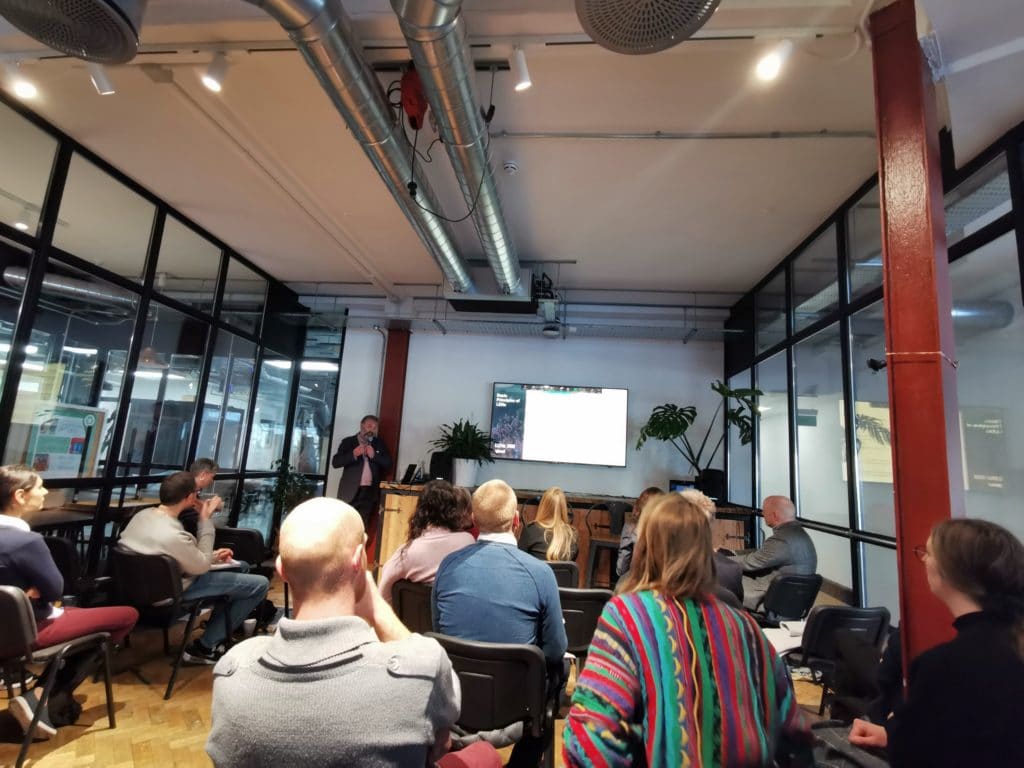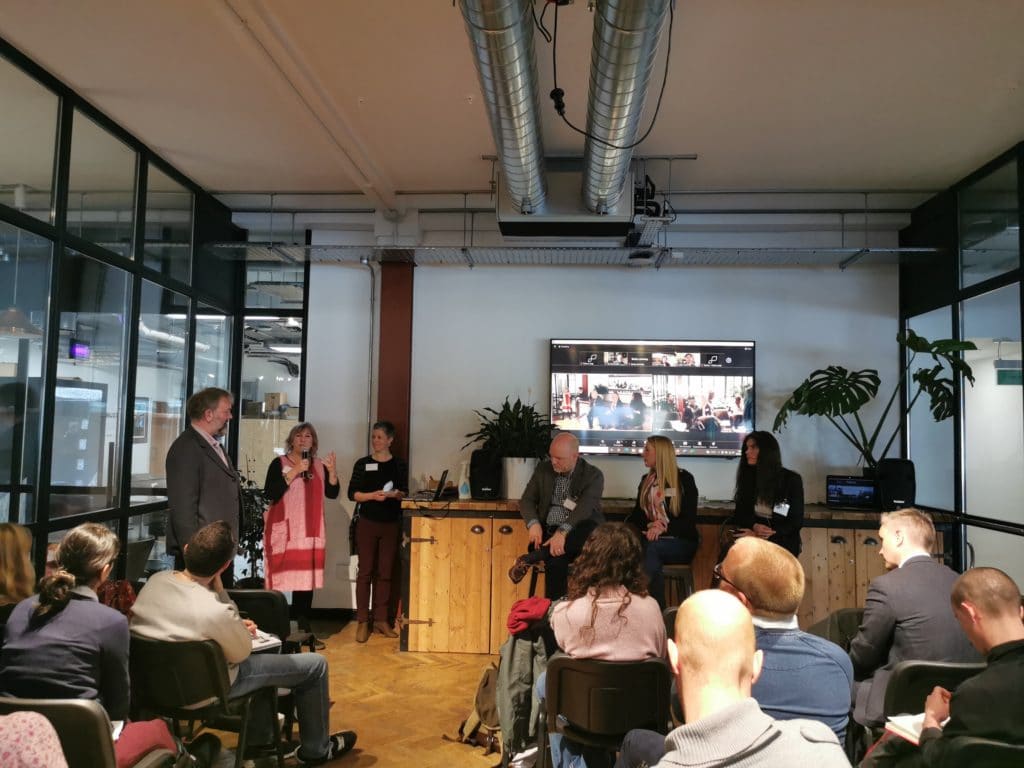
On 5 April, the Future Leap Network hosted “Naturally Successful: Your Business and Biodiversity”, a hybrid in-person and online event, kindly sponsored by Ashfords LLP. Guests attending in-person were welcomed into the Future Leap Hub with fresh pastries, tea, and coffee.

After some breakfast networking Katherine Piper, Head of Partnerships and Sustainability, introduced the audience to the work being done at Future Leap, our award-winning hub, and news about our upcoming Festival of Sustainable Business – she invited attendees to apply for this year’s Sustainable Business Awards, which will be presented at the Festival’s Gala Dinner in June.

Russell Ashfield – Senior Consultant at 3Keel
Russell Ashfield kicked off the event by introducing 3Keel, the highly successful environmental and sustainability consultancy firm. A certified B Corporation, 3Keel is also very proud of its award from the Financial Times as the UK’s Leading Management Consultants. The main topic of his talk surrounded Landscape Enterprise Networks (LENs), a system for linking buyers and sellers of nature-based solutions. Russell explained that the LENs approach can be applied first by identifying multiple businesses needs from the land. Any landscape assets that can provide for these needs are sought out – service providers that who the supply of these resources are then contacted and a deal is then negotiated between all parties. A great recent example of a LEN in practice is in Cumbria, where both Nestle’s dairy farms and United Utilities Northwestern water services are located. This collaborative approach between a number of businesses led to important investment into soil and nutrient management.

Nicki Davey – Founder of Saltbox
Nicki began her talk by speaking of the transformational effect of nature in inspiring creative solutions for businesses. She explained how it can shift our way of being and further our connection to both the natural world and each other, facilitating more environmentally conscious decisions. The long term success of natural processes can also be utilised as a business guide. Nicki asked the audience to close their eyes and imagine a woodland scene, and progressively in vision the changes exhibited throughout the seasons. She then went onto suggest how this panarchy loop in nature can also be applied to business models, with spring symbolizing growth, summer being conservation, autumn being release and winter representing renewal. The audience were then encouraged to participate in discussions about how this might be adopted in their own businesses. More information, including Saltbox’s Nature at Work booklet is available from Nicki (contact nicki@saltbox.co.uk).

Discussion Panel: Ruth Murray – Director of Environment Bank Limited, Lara Moore – Partner at Ashfords LLP and Ben Derrington – Legal Director and Head of Business Risk and Regulation at Ashfords LLP
The final speakers took part in a panel discussion focused on current biodiversity issues and the practicalities for businesses to help these issues. Lara introduced the panel speakers.
Ruth described her role as a funder for Environment Bank – she seeks out real asset sustainable solutions for businesses. A strong belief at the Environment Bank is that biodiversity issues are intertwined with climate goals. She spoke about the work being done in supporting businesses that are answering biodiversity crisis questions, as well as the bank’s focus in collaboration, education, and the provision of infrastructure for businesses to have biodiversity goals in line from an early on-set.
Ben then explained his work which often focuses on both environmental disasters taking place and transactions from the environment. He emphasised the importance of using environmental management systems as a framework for considering risks and impacts on business developments.
Lara stressed the importance of the 2021 Environment Act and described an updated key requirement of the Act – a 10% net gain in biodiversity must be implemented for all planning permissions. She explained that this is measured through assessing the habitats at the development site and assigning them a unit score, which then must be increased by 10% either at the development site or can be offset to other environments.

The audience were invited to question the panel and an insightful discussion ensued between both online and in-person audience members and the speakers. Questions were then opened up to all of the speakers attending the event.

Following the Q&A, 60 second pitches took place:
- Ed, Garrett Creative
Independent branding agency. Work with businesses in sustainability focused businesses.
- Dan, Co-founder of Tusko
Award winning creative agency.
- James Pitcher, Soil Check
Contaminant land consultant.
- Simon, Future Leap
Carbon footprinting, profiling and support.

More networking took place for in-person and online attendees brought the event to a close.
Write up by Ella Grantham.



